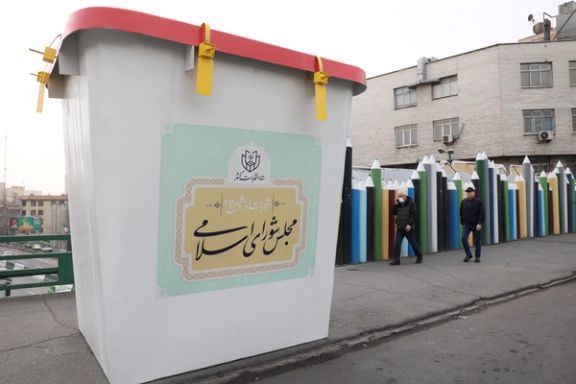Iranian Reformist Party Declines Endorsements In Sham Elections

The reformist Etehad-e Mellat (Nation’s Unity) party has declared its decision not to endorse any candidates in Iran’s March 1 elections for the parliament and the Assembly of Experts.

The reformist Etehad-e Mellat (Nation’s Unity) party has declared its decision not to endorse any candidates in Iran’s March 1 elections for the parliament and the Assembly of Experts.
This announcement, made through a statement on the party's website, signifies a notable departure from active participation without outrightly boycotting the electoral process.
The issue of participation has caused a rift among reformists. The general assembly of the Reformist Front decided earlier this week that Reformists could not participate in elections that are “devoid of meaning, uncompetitive, unfair, and ineffective in the management of the country but earlier this week 110 reformist figures in a statement urged their comrades not to shun the vote while admitting that the elections are going to be far from fair and free.
Prominent figures like Iran's imprisoned Nobel Peace laureate Narges Mohammadi have chosen to boycott the elections unequivocally. Mohammadi's declaration, made via authorized social media accounts, underscores a growing sentiment against what she perceives as the government's orchestrated electoral process.
Etehad-e Mellat, in its statement, criticized the discretionary oversight of the election watchdog, the Guardian Council, which it argues undermines the democratic process by limiting genuine choices for the electorate. The Council's stringent vetting process has effectively marginalized not only reformists but also moderate conservatives from the electoral arena.
In addition to the parliament, the election of a new Assembly of Experts, is important given the constitutionally designated body’s authority to select the future Supreme Leader. The widespread disqualification of candidates paves the way for strengthening the ruling hardliners’ full sway on all centers of power.
The party highlighted the prevailing disillusionment among the populace regarding the electoral system, a sentiment echoed in recent surveys. A survey by the Netherlands-based Gamaan institute revealed widespread disengagement, with a significant majority expressing disinterest or outright refusal to participate in the elections.
The survey found that nearly three quarter of all eligible voters who responded to its poll had decided not to vote including 39 percent of those who had voted in the parliamentary elections in February 2020.
The same survey found that if a referendum was held, nearly 75 percent of its respondents would say no to the Islamic Republic.
The Guardian Council, originally empowered to interpret the Constitution, review legislation, and supervise elections, bestowed upon itself discretionary supervisory powers over elections in 1991, giving it the final say on candidate eligibility.
Established in 2015, Hezb-e Etehad-e Mellat-e Iran Eslami comprises veteran Reformist politicians, many of whom were formerly associated with the influential Jebhe-ye Mosharekat (Participation Front). Mosharekat, which dominated the parliament between 2000-2004 during Mohammad Khatami's presidency (1997-2005), faced significant setbacks when its members were later barred from electoral participation by the Guardian Council.
Etehad-e Mellat, the only major Iranian political party with a female secretary general, Azar Mansouri, last year demanded the abolition of compulsory hijab in Iran and discrimination against women in higher education and in the law.
Deprived of their own candidates, in 2013 and 2017 Reformists including Etehad-e Mellat helped the moderate conservative Hassan Rouhani to win the presidency.
The Party, considered as the most influential member of the Reformist Front at the time, was banned in 2009 in the aftermath of the disputed elections that brought the hardliner Mahmoud Ahmadinejad to power for a second term, and many of its leading figures were imprisoned. The party did not declare itself secular but did promote the separation of religion and state.